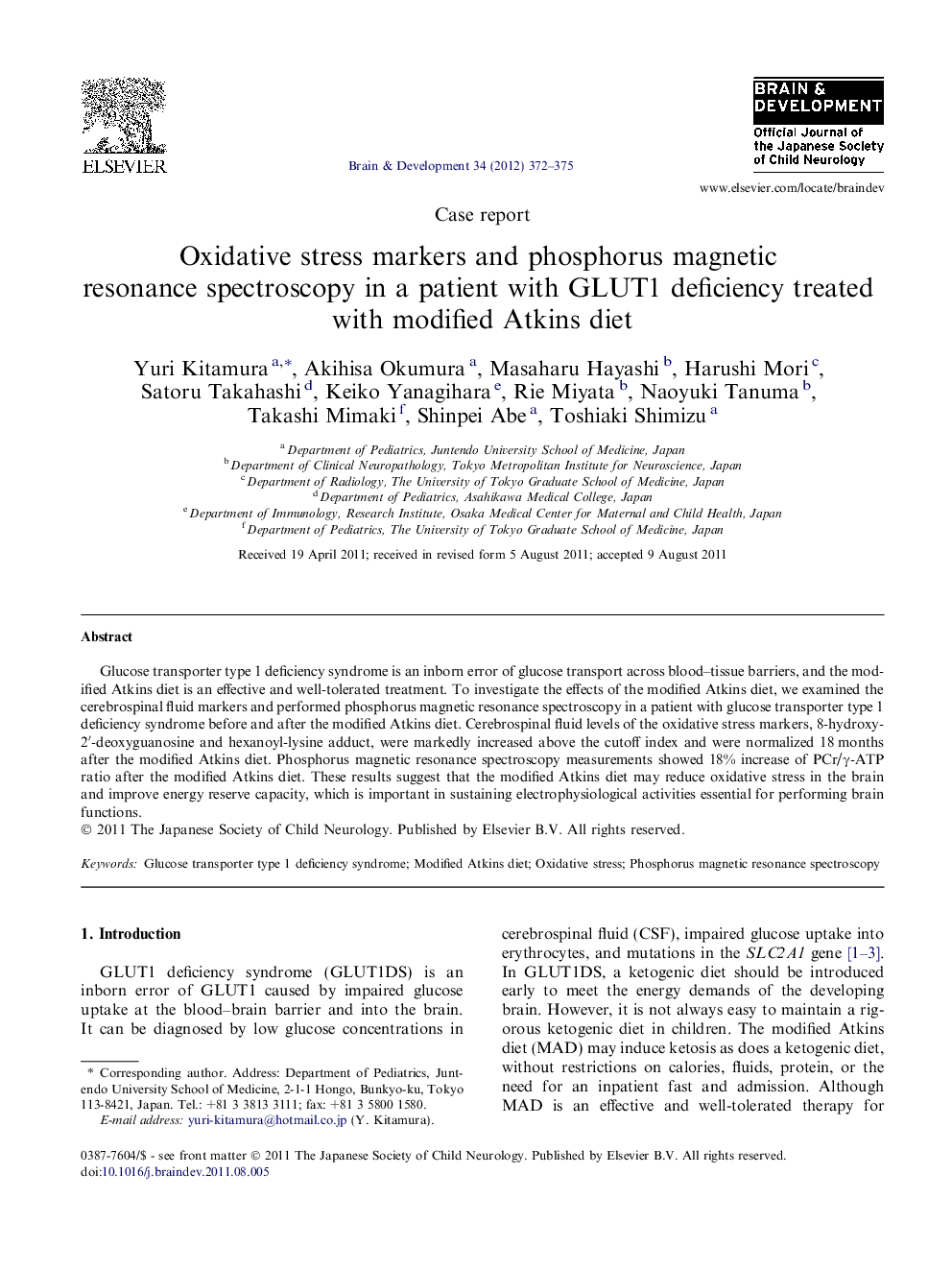| Article ID | Journal | Published Year | Pages | File Type |
|---|---|---|---|---|
| 3037602 | Brain and Development | 2012 | 4 Pages |
Glucose transporter type 1 deficiency syndrome is an inborn error of glucose transport across blood–tissue barriers, and the modified Atkins diet is an effective and well-tolerated treatment. To investigate the effects of the modified Atkins diet, we examined the cerebrospinal fluid markers and performed phosphorus magnetic resonance spectroscopy in a patient with glucose transporter type 1 deficiency syndrome before and after the modified Atkins diet. Cerebrospinal fluid levels of the oxidative stress markers, 8-hydroxy-2′-deoxyguanosine and hexanoyl-lysine adduct, were markedly increased above the cutoff index and were normalized 18 months after the modified Atkins diet. Phosphorus magnetic resonance spectroscopy measurements showed 18% increase of PCr/γ-ATP ratio after the modified Atkins diet. These results suggest that the modified Atkins diet may reduce oxidative stress in the brain and improve energy reserve capacity, which is important in sustaining electrophysiological activities essential for performing brain functions.
